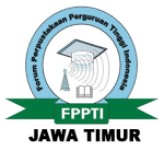Readiness of Libraries in Building Knowledgeable Society
Downloads
Background of the study: Facing the challenges of society 5.0, Pontianak as the city in West Kalimantan has maneuvered by establishing several libraries and parks with reading facilities in the potential areas. Three of them are in the tourist area on the Kapuas riverbank. Communities living around libraries have vulnerability due to environmental, economic, and educational problems.
Purpose: To analyze the readiness of the three libraries in building a knowledgeable Kapuas riverbank communities.
Method: Descriptive qualitative. Data collection techniques were carried out by observation, interviewing to 9 informants, and data documentation. Data analysis techniques consisted of data collection, reduction, presentation, and drawing conclusions.
Findings: Long Fiah and Benua Melayu Laut Libraries have not yet ready to optimize their role as centers of education and information for communities due to the absence of library staff to manage the library, the difficulties in adding the collections, and the lack of promotion to communities. As a result, communities' knowledge has not changed significantly. On the other hand, Bahagia Mendawai library has showed its role as a mediator and facilitator for communities to increase their knowledge. Even some innovations to foster a literacy culture can be seen from the Siberliterasi, JeLi, and Literacy Corner programs.
Conclusion: As a first step in building a knowledgeable society, it is necessary to start from creating a literacy culture with strategic programs and commitment from library staff such as the literacy innovation program carried out by Bahagia Mendawai library. It is conducted by collaborating, adapting, and involving the community in library activities. The impact will help the community solving the problems. Pontianak will be better prepared to create a smart city with the support of knowledgeable communities.
Downloads
Amanda, G. (2021, November 5). HCPS Perkembangan dan Aplikasinya dalam Teknologi. https://www.republika.co.id/berita/r23t53423/hcps-perkembangan-dan-aplikasinya-dalam-teknologi
Angelidou, M. (2015). Smart cities: A conjuncture of four forces. Cities, 47, 95–106. https://doi.org/10.1016/j.cities.2015.05.004
Angelidou, M., Gountaras, N., & Tarani, P. (2012). Engaging digital services for the creation of urban knowledge ecosystems: The case of Thermi, Greece. International Journal of Knowledge-Based Development, 3(4), 331–350. https://doi.org/10.1504/IJKBD.2012.050090
Christiani, L. (2018). Peran Perpustakaan dalam Mewujudkan Budaya Informasi Masyarakat. Anuva, 2(2). https://doi.org/10.14710/anuva.2.2.205-212
Foresti, R., Rossi, S., Magnani, M., Guarino Lo Bianco, C., & Delmonte, N. (2020). Smart Society and Artificial Intelligence: Big Data Scheduling and the Global Standard Method Applied to Smart Maintenance. Engineering, 6(7), 835–846. https://doi.org/10.1016/J.ENG.2019.11.014
Habibah, A. F., & Irwansyah, I. (2021). Era Masyarakat Informasi sebagai Dampak Media Baru. Jurnal Teknologi Dan Sistem Informasi Bisnis, 3(2). https://doi.org/10.47233/jteksis.v3i2.255
Hanum, A. N. L., & Baaqii, F. A.-K. (2021). Ikalbar App: Build a Society Reading Culture of West Kalimantan During the Covid-19 Pandemic. Record and Library Journal, 7(1), 142–153. https://doi.org/10.20473/RLJ.V7I1.114
Hart, S., & Amos, H. (2014). The development of performance measures through an activity based benchmarking project across an international network of academic libraries. Performance Measurement and Metrics, 15(1–2), 58–66. https://doi.org/10.1108/PMM-03-2014-0010/FULL/XML
Ibrahim, J. (2022, February 24). Smart City Butuh Dukungan SDM yang Smart | Pemerintah Kota Pontianak. https://pontianakkota.go.id/pontianak-hari-ini/berita/Smart-City-Butuh-Dukungan-SDM-yang-Smart
Jackson, N. (2001). Benchmarking in UK HE: An overview. Quality Assurance in Education, 9(4), 218–235. https://doi.org/10.1108/09684880110411955/FULL/XML
Komninos, N. (2011). Intelligent cities: Variable geometries of spatial intelligence. Intelligent Buildings International, 3(3), 172–188. https://doi.org/10.1080/17508975.2011.579339
Leorke, D., Wyatt, D., & McQuire, S. (2018). "More than just a library”: Public libraries in the 'smart city'. City, Culture and Society, 15, 37–44. https://doi.org/10.1016/j.ccs.2018.05.002
Makmur, T. (2019). Revolusi sumber-sumber informasi di internet dan hubungannya dengan masyarakat informasi. Al-Kuttab : Jurnal Kajian Perpustakaan, Informasi Dan Kearsipan, 1(1). https://doi.org/10.24952/ktb.v1i1.1593
Maulika, S. C., Nurhidayati, E., & Chairunnisa. (2021). Analisis Ketahanan Masyarakat Di Tepian Sungai Kapuas (Studi Kasus Kelurahan Tambelan Sampit). 8(1). https://jurnal.untan.ac.id/index.php/JMHMS/article/view/44742
Peraturan Daerah Provinsi Kalimantan Barat Nomor 4 tahun 2018 tentang Perpusatakaan, (2018). https://jdih.perpusnas.go.id/detail/239
Peraturan Gubernur Kalimantan Barat Nomor 40 tahun 2019 tentang Tranformasi Perpustakaan Berbasis Inklusi Sosial di Kalimantan Barat, (2019). https://jdih.perpusnas.go.id/detail/307
Shimbo, A., & Tendo, M. (2022). Creating cultural resources and reading: A case study of a public library and invisible parental pedagogy in Tokyo. International Journal of Educational Research, 113, 101970. https://doi.org/10.1016/j.ijer.2022.101970
Solihin, L., Utama, B., Pratiwi, I., & Novirina. (2019). Indeks Aktivitas Literasi Membaca 34 Provinsi (1st ed.). https://litbang.kemdikbud.go.id
Sugiyono. (2020). Metode Penelitian Kualitatif: untuk penelitian yang bersifat eksploratif, enterpretif, interaktif, dan konstruktif (S. Y. Suryandari, Ed.; 3rd ed.). Alfabeta.
Unyil. (2021, June 14). Masyarakat Literat Menuju Peradaban Baru. https://mediaindonesia.com/opini/411795/masyarakat-literat-menuju-peradaban-baru
Copyright (c) 2022 Atiqa Nur Latifa Hanum

This work is licensed under a Creative Commons Attribution-ShareAlike 4.0 International License.
Record and Library Journal by Unair is licensed under a Creative Commons Attribution-ShareAlike 4.0 International License.
1. The journal allows the author to hold the copyright of the article without restrictions.
2. The journal allows the author(s) to retain publishing rights without restrictions
3. The legal formal aspect of journal publication accessibility refers to Creative Commons Attribution Share-Alike (CC BY-SA).
4. The Creative Commons Attribution Share-Alike (CC BY-SA) license allows re-distribution and re-use of a licensed work on the conditions that the creator is appropriately credited and that any derivative work is made available under "the same, similar or a compatible license”. Other than the conditions mentioned above, the editorial board is not responsible for copyright violation.


 57201398420
57201398420

























